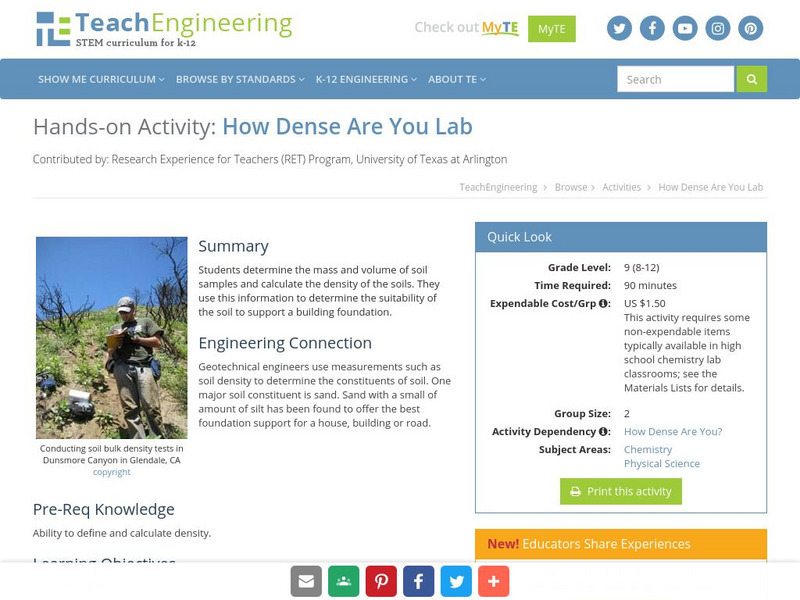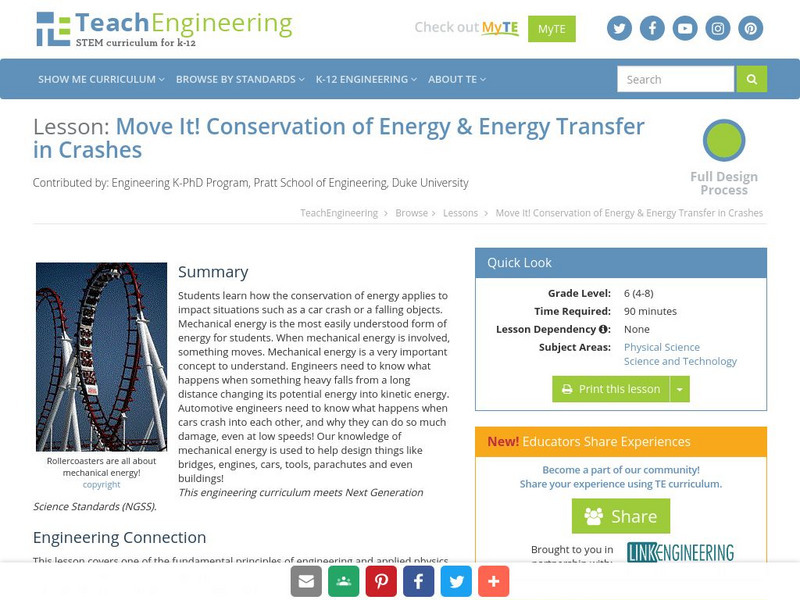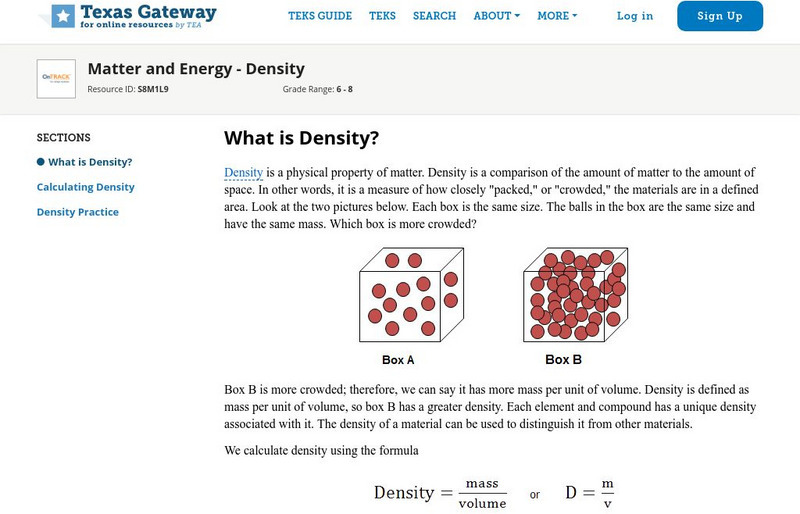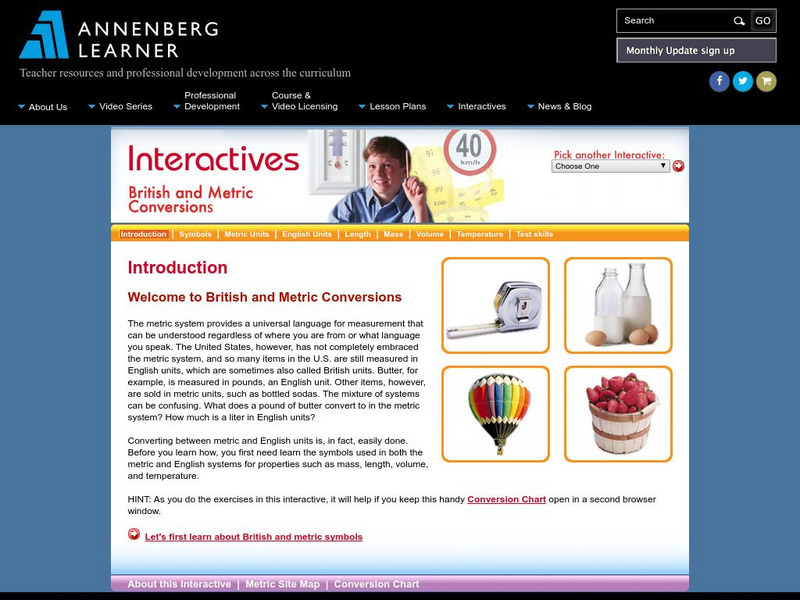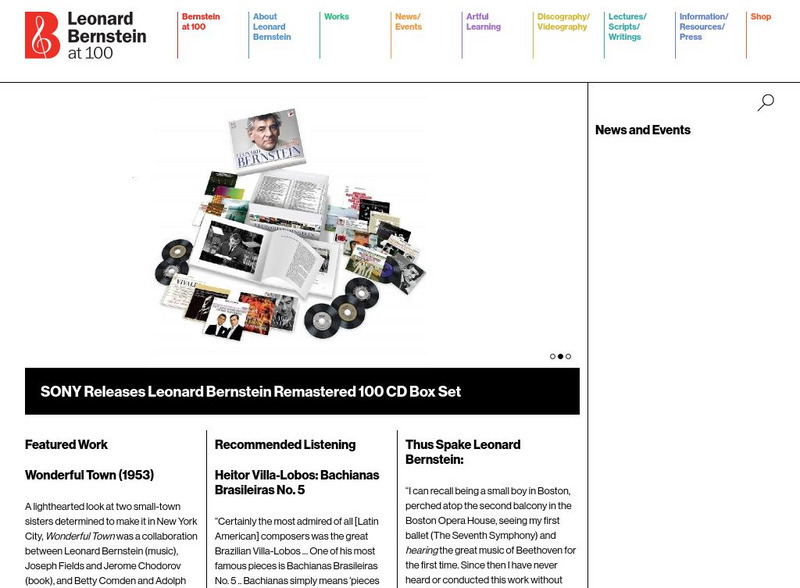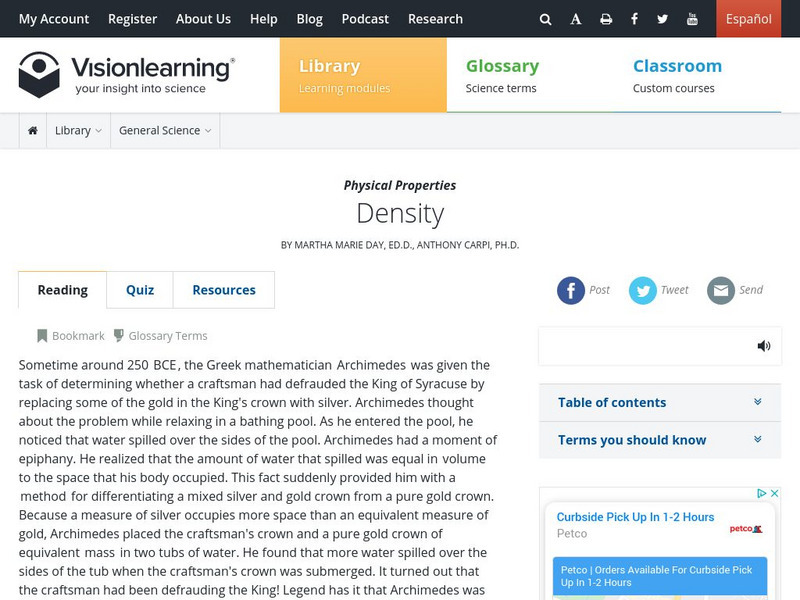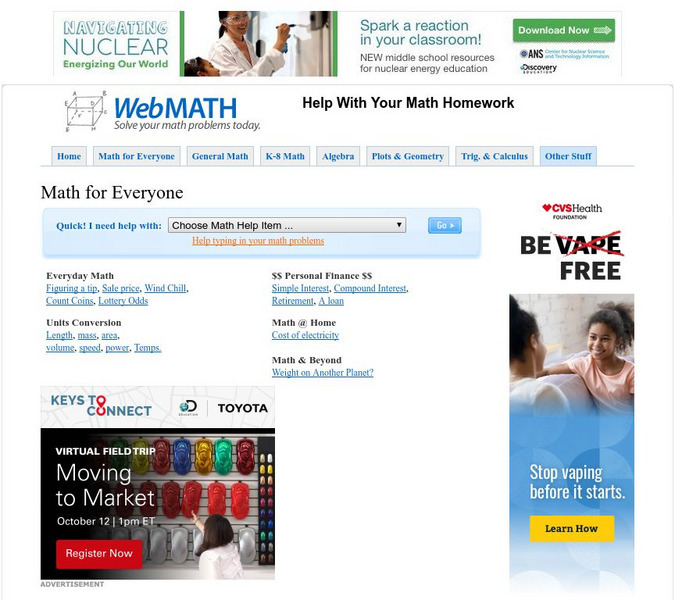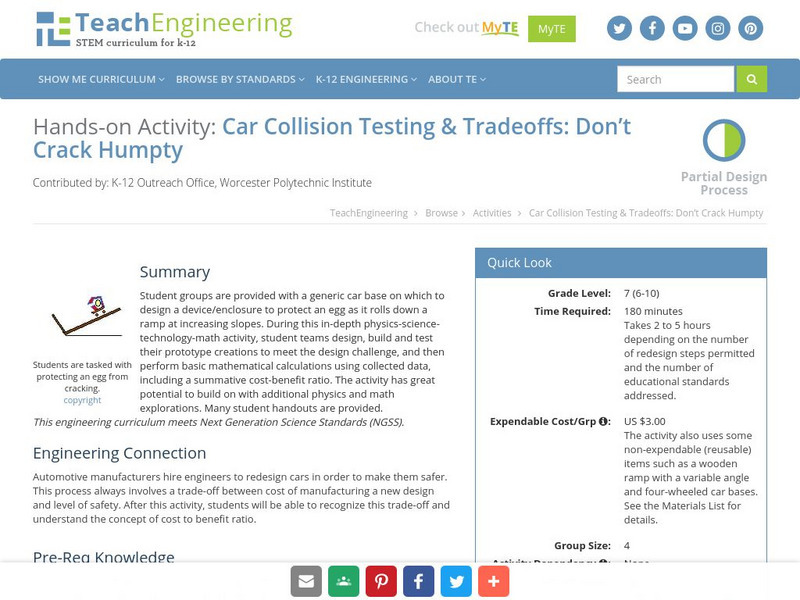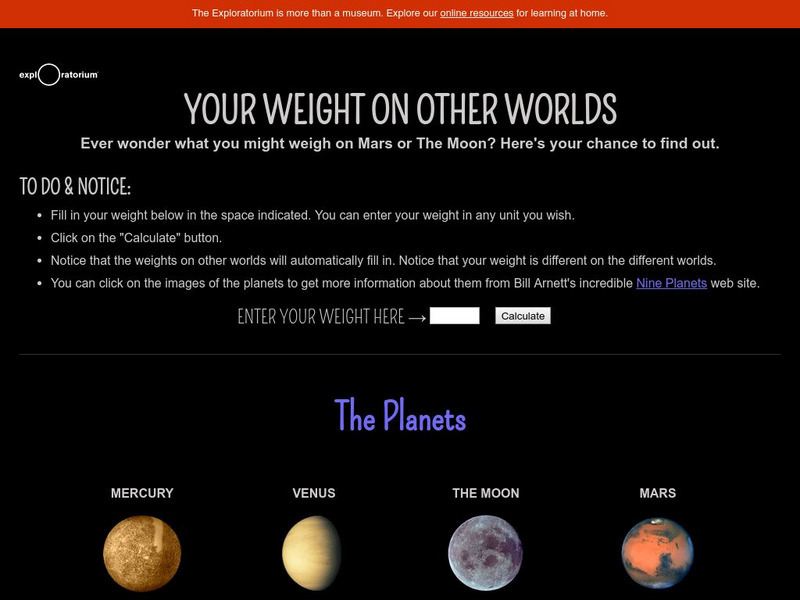American Chemical Society
American Chemical Society: Hompage
ChemCenter, available from the American Chemical Society, provides chemistry news, reference sources and other public services.
TeachEngineering
Teach Engineering: Mint Mobiles
Students design, build and test model race cars made from simple materials (lifesaver-shaped candies, plastic drinking straws, Popsicle sticks, index cards, tape) as a way to explore independent, dependent and control variables. They...
TeachEngineering
Teach Engineering: Action Reaction! Rocket
Students construct a rocket from a balloon propelled along a guide string. They use this model to learn about Newton's three laws of motion, examining the effect of different forces on the motion of the rocket.
TeachEngineering
Teach Engineering: Does Your Chewing Gum Lose Its Flavor?
In the first part of the activity, each student chews a piece of gum until it loses its flavor, and then leaves the gum to dry for several days before weighing it to determine the amount of mass lost. This mass corresponds to the amount...
TeachEngineering
Teach Engineering: How Dense Are You Lab
Students determine the mass and volume of soil samples and calculate the density of the soils. They use this information to determine the suitability of the soil to support a building foundation.
TeachEngineering
Teach Engineering: Density Column Lab Part 1
In this first part of a two-part lab activity, students use triple balance beams and graduated cylinders to take measurements and calculate the densities of several common, irregularly shaped objects with the purpose to resolve confusion...
TeachEngineering
Teach Engineering: Mechanics Mania
Through ten lessons and numerous activities, students explore the natural universal rules engineers and physicists use to understand how things move and stay still. Together, these rules are called "mechanics." The study of mechanics is...
TeachEngineering
Teach Engineering: The Physics of Fluid Mechanics
Five lessons about the study of fluid mechanics. The unit concludes with students applying what they have learned to determine the stability of individual above-ground storage tanks given specific storm conditions so they can analyze...
TeachEngineering
Teach Engineering: Move It!
Mechanical energy is the most easily understood form of energy for learners. When there is mechanical energy involved, something moves. Mechanical energy is a very important concept to understand. Engineers need to know what happens when...
TeachEngineering
Teach Engineering: What Floats Your Boat?
Students use modeling clay, a material that is denser than water and thus ordinarily sinks in water, to discover the principle of buoyancy. They begin by designing and building boats out of clay that will float in water, and then refine...
Texas Education Agency
Texas Gateway: Newton's First Law
Within this resource, you will learn more about Newton's first law and real-world applications of this law.
Texas Education Agency
Texas Gateway: What Is Density?
This tutorial is an explanation of the properties of density.
Annenberg Foundation
Annenberg Learner: British and Metric Conversions Interactives
The resource assesses students on British and metric conversions. There are tutorials on metric units, length, mass, volume, English units, symbols, and temperature. There is also an introduction and an interactive activity to test the...
University of St. Andrews (UK)
University of St. Andrews: Albert Einstein
A truly complete biography of the great man. Some adequate discussion of his theoretical and scientific work, but the accent here is on his personal life. Many anecdotes, many quotes from him, many references and hotlinks to other...
Other
The Official Leonard Bernstein Site
As the Official site, there are recordings, lectures, letters, photos, publications, scripts, etc. that are unavailable elsewhere. Links to the Library of Congress' Leonard Bernstein Collection, another excellent source.
Vision Learning
Visionlearning: General Science: Density
Instructional module focusing on density as a physical property of matter. Discussion incorporates historical references as well as formulas. Site also includes an interactive practice quiz and links relating to the topic.
Sophia Learning
Sophia: Physical Science: Conservation of Mass
Created to teach students of the 21st century, Sophia is bringing the laws of mass straight to your fingertips. Become the commander of your own learning experiences as you take part in this brief tutorial. [0:56]
Discovery Education
Discovery Education: Web Math: Math for Everyone
Provides online programs and explanations on everyday math: calculating a tip at a restaurant, determining the sale price of an item, finding the odds of winning a lottery, computing simple and compound interest, and more.
TeachEngineering
Teach Engineering: Car Collision Testing & Tradeoffs: Don't Crack Humpty
Student groups are provided with a generic car base on which to design a device/enclosure to protect an egg as it rolls down a ramp at increasing slopes. During this activity, student teams design, build and test their prototype...
Exploratorium
Exploratorium: Your Weight on Other Worlds
From the Exploratorium Museum. Includes an interactive feature in which a visitor enters their weight on earth and has their weight on other planets computed and displayed. Discusses the distinction between mass and weight and describes...
Georgia State University
Georgia State University: Hyper Physics: Mass, Weight, and Weightlessness
Site from HyperPhysics dealing with the topic of mass and weight. In addition the site deals with weightlessness. The numerous links to other pages help the student see how ideas are interrelated.
Utah State Office of Education
Utah State Office of Education: Force, Energy, & Motion
A unit on energy, force, and motion presented with interactive and classroom activities. Students gain an understanding of weight, mass, potential and kinetic energy, sound, and heat with this engaging resource.
eSchool Today
E School Today: All About Forces
Forces are everywhere. Learn what they are, the characteristics of forces, different kinds of forces, and factors that affect them.
Discovery Education
Discovery Education: Rules of Forces and Motion
With this hands-on lesson plan, help students understand force, gravity, friction, and speed. Students will also learn how each of these concepts affects the another.






